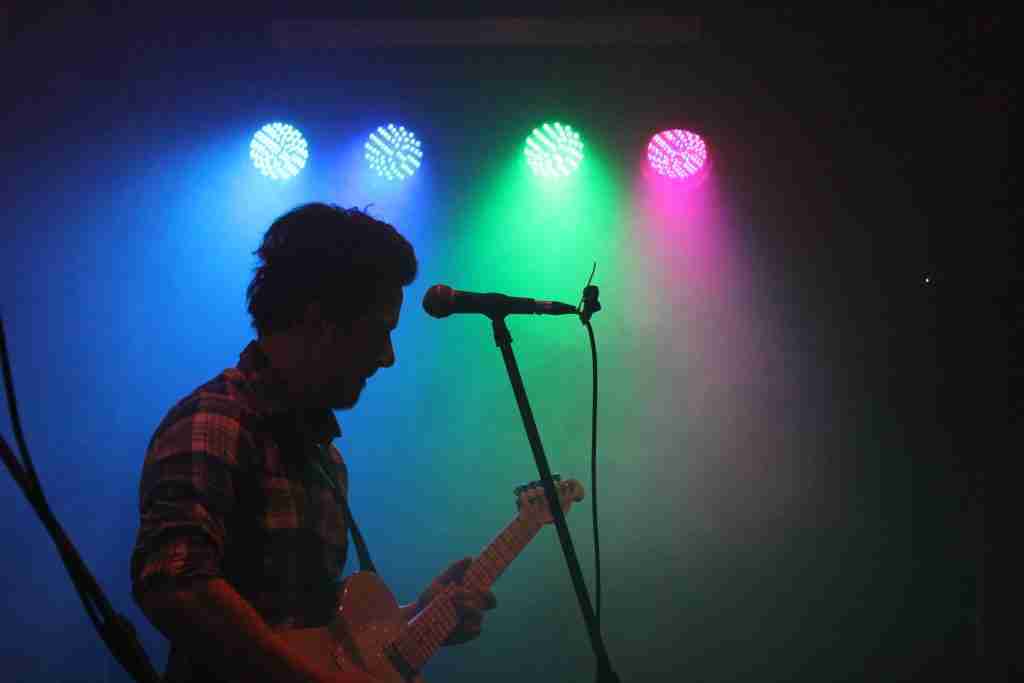So, you’re probably wondering about the effects of alcohol on soccer performance, huh? Well, let’s dive straight into it. Alcohol is no stranger to social gatherings and celebrations, but when it comes to sports, it can have a significant impact. From impaired coordination and reduced reaction time to decreased endurance and increased risk of injuries, alcohol can seriously mess with your game. Whether you’re the amateur enthusiast playing with friends or a professional athlete, understanding the ways alcohol affects your performance on the soccer field is crucial. So, let’s grab a drink (of water) and explore the effects, shall we?

Physical Effects of Alcohol on Soccer Performance
Dehydration and Impaired Fluid Balance
Alcohol is a diuretic, meaning it increases urine production and leads to dehydration. Dehydration can have detrimental effects on soccer performance as it impairs the body’s ability to regulate temperature, reduces endurance, and increases the risk of muscle cramps. When you consume alcohol, your body prioritizes metabolizing it over maintaining proper fluid balance, leading to an even greater risk of dehydration during physical exertion on the soccer field.
Decreased Muscle Strength and Endurance
Alcohol consumption has been shown to decrease muscle strength and endurance, both of which are crucial for optimal soccer performance. Alcohol inhibits the body’s ability to generate force and power, ultimately compromising your ability to sprint, jump, and compete for the ball effectively. Additionally, alcohol impairs muscle recovery, leading to increased fatigue and longer periods of muscle soreness, which can significantly hinder your ability to perform at your best on the soccer field.
Reduced Reaction Time and Coordination
Alcohol has a profound impact on reaction time and coordination, two essential factors in soccer performance. Consuming alcohol significantly slows down the brain’s processing speed, making it harder for you to react quickly to changes in the game and effectively execute your movements. It impairs hand-eye coordination and fine motor skills, which are crucial for accurate passing, shooting, and ball control. Moreover, impaired coordination can increase the risk of collisions and injuries on the field, impacting not only your performance but also your overall safety.
Cognitive Effects of Alcohol on Soccer Performance
Impaired Decision Making and Judgment
Alcohol impairs decision-making and judgment, making it harder for you to make quick and accurate choices during a soccer match. This can lead to poor tactical decisions, such as choosing the wrong passing option or failing to anticipate the movements of your opponents. Additionally, impaired judgment can result in riskier behavior on the field, such as attempting risky tackles or making rash challenges that can lead to fouls and penalties.
Decreased Concentration and Focus
One of the cognitive effects of alcohol consumption is a reduced ability to concentrate and maintain focus. Soccer requires constant attention to the game, monitoring the movements of teammates and opponents, and reacting quickly to changing situations. Alcohol disrupts these cognitive processes, making it harder for you to stay engaged in the game and effectively execute your skills. This can result in missed opportunities, misplaced passes, and a general decrease in overall performance.
Slowed Mental Processing
Alcohol slows down mental processing, making it difficult for you to perceive and interpret important cues and information on the soccer field. This can impair your ability to anticipate the movements of teammates and opponents, read the game effectively, and make quick decisions. Slowed mental processing can significantly decrease your reaction time, leaving you at a disadvantage in situations that require split-second reactions, such as intercepting a pass or making a crucial save.
Psychological Effects of Alcohol on Soccer Performance
Increased Risk-Taking Behavior
Alcohol has the potential to increase risk-taking behavior on the soccer field. When under the influence, you may be more inclined to take unnecessary risks, such as attempting audacious shots or making overly aggressive tackles. While risk-taking is a part of the game, excessive risk-taking due to alcohol consumption can lead to poor decision-making and may result in undesired outcomes, such as turnovers, injuries, and loss of possession.
Decreased Motivation and Confidence
Alcohol consumption can have a negative impact on your motivation and confidence levels, both of which are crucial for performing at your best. Alcohol depresses the central nervous system, which can lead to decreased motivation to train, compete, and put in the necessary effort required to excel on the soccer field. Additionally, alcohol’s influence on mood can decrease confidence levels, affecting your belief in your abilities and undermining your performance during matches.
Changes in Mood and Emotions
Alcohol is known to affect mood and emotions, and these changes can have a significant impact on soccer performance. While some people may experience a temporary increase in confidence and sociability, it is not uncommon for alcohol to also cause feelings of aggression or mood swings. These emotional fluctuations can lead to erratic behavior and poor interactions with teammates and opponents, ultimately disrupting team dynamics and hindering performance on the field.
Injury Risk and Recovery
Increased Risk of Injuries
Alcohol consumption significantly increases the risk of injuries on the soccer field. Impaired coordination, slowed reaction time, and decreased muscle strength increase the likelihood of collisions and accidents. Additionally, alcohol impairs judgment and decision-making, leading to riskier behavior and increased susceptibility to tackles and fouls. Injuries sustained while under the influence of alcohol may also be more severe, as alcohol impairs the body’s natural ability to heal and recover.
Delayed Recovery and Healing Process
Alcohol can delay the recovery and healing process after injuries. Not only does alcohol impair the body’s natural healing mechanisms, but it also interferes with sleep patterns and quality, which are crucial for proper recovery. Alcohol consumption can prolong inflammation, increase pain sensitivity, and negatively impact the formation of new tissue, ultimately lengthening the recovery time needed to get back on the soccer field.

Effect on Technical Skills and Performance Metrics
Poor Ball Control and Passing Accuracy
Alcohol consumption has a detrimental effect on your technical skills, particularly ball control and passing accuracy. Impaired coordination, decreased muscle strength, and slowed mental processing make it challenging to execute precise movements and accurately control the ball. This can result in misplaced passes, poor first touches, and an overall decline in passing accuracy, impacting your ability to contribute effectively to the team’s gameplay.
Reduced Shooting and Heading Ability
Shooting and heading are crucial skills in soccer, but alcohol consumption can significantly impair your ability to execute them effectively. Poor coordination and decreased muscle strength make it harder to generate the power and accuracy required for successful shooting and heading. Additionally, impaired judgment and slowed mental processing can result in poor decision-making during shooting opportunities, leading to missed chances and scoring opportunities for the team.
Decreased Speed and Endurance
Alcohol consumption can adversely affect your speed and endurance on the soccer field. Alcohol impairs muscle function, leading to decreased power output and slower sprinting speeds. Furthermore, alcohol’s dehydrating effects can cause fatigue and reduce your overall endurance levels, limiting your ability to maintain high-intensity efforts throughout the duration of a match. These physical limitations can hinder your ability to keep up with the pace of the game and impact your overall performance on the field.
Tactical Implications
Difficulty in Understanding and Executing Tactics
Alcohol consumption can make it challenging to understand, remember, and execute tactical instructions and strategies during a soccer match. Impaired cognitive function, decreased concentration, and slowed mental processing can prevent you from fully grasping the nuances of the game plan and effectively implementing them on the field. This can result in confusion, disorganization, and a lack of cohesion within the team, ultimately hindering overall performance.
Inability to Read the Game and Make Quick Decisions
Soccer requires constantly reading the game, analyzing the positions of teammates and opponents, and making quick decisions based on the developing situations. Alcohol’s impact on cognitive function and reaction time can impair your ability to read the game effectively. Slowed mental processing and impaired judgment can delay your decision-making process and prevent you from making timely and accurate choices on the field. This can lead to missed opportunities, decreased fluidity in playing style, and a general stagnation in gameplay.

Effects on Team Dynamics and Communication
Disruption of Teamwork and Coordination
Alcohol consumption can disrupt teamwork and coordination within a soccer team. Impaired communication and decision-making, decreased concentration, and changes in mood and emotions can interfere with effective teamwork on the field. Miscommunication, misunderstandings, and a lack of synchronization in movements can hinder the team’s ability to play cohesively, impacting not only individual performances but also overall team performance.
Decreased Verbal and Nonverbal Communication
Alcohol consumption can impair both verbal and nonverbal communication on the soccer field. Slurred speech, confusion, and slowed mental processing can hinder effective communication between teammates, leading to misunderstandings and misinterpreted instructions. Additionally, impaired coordination can affect nonverbal communication cues, such as body language and visual signals, making it harder for teammates to understand each other’s intentions and coordinate their movements effectively.
Alcohol Timing and Performance Impact
Immediate Effects on Game Performance
Alcohol consumption can have immediate effects on game performance, with the impairments becoming noticeable within a short period. Even a few drinks before a match can lead to dehydration, slower reaction times, decreased coordination, and impaired decision-making. These immediate effects can compromise your ability to perform at your best, impacting not only individual performance but also team dynamics and the overall outcome of the game.
Short-Term Impact on Performance
While alcohol’s effects may be immediate, they can also have a lingering impact on short-term performance. The aftereffects of alcohol consumption, such as fatigue, grogginess, and decreased muscle strength, can persist for hours or even days. These physical and cognitive impairments can limit your ability to train effectively, recover from exertion, and perform optimally in subsequent matches. It is important to consider the longer-term implications of alcohol consumption for short-term performance outcomes.
Long-Term Consequences and Damage
Consistent alcohol consumption can have long-term consequences and damage for soccer performance. Chronic dehydration, impaired muscle recovery, decreased muscle strength, and disrupted cognitive function can accumulate over time, leading to a decline in overall performance and an increased risk of injuries. Long-term alcohol use can also lead to detrimental effects on physical and mental health, further compromising your ability to perform at your best on the soccer field.
Effects on Recovery and Training
Impaired Muscle Recovery
Alcohol consumption impairs the body’s ability to recover after intense physical activity, including soccer matches and training sessions. Alcohol disrupts the body’s natural healing processes, prolonging inflammation and delaying the repair of damaged tissues. Furthermore, alcohol interferes with sleep quality, which is essential for proper muscle recovery and regeneration. Impaired muscle recovery can increase the risk of muscle injuries and make it harder for you to reach peak performance levels.
Negative Impact on Training Adaptations
Training adaptations are vital for improving soccer performance, but alcohol consumption can negatively impact these adaptations. Alcohol impairs protein synthesis, making it more difficult for your muscles to build and repair themselves after training sessions. Additionally, the dehydrating effects of alcohol can hamper your body’s ability to adapt to exercise and maximize training gains. Consistent alcohol use can hinder your training progress, impede your ability to reach your performance goals, and increase the risk of setbacks and injuries.
Alcohol Consumption in Soccer Culture
Understanding the Prevalence of Alcohol Use
Alcohol consumption has long been present in soccer culture. The prevalence of alcohol use among players, coaches, and fans highlights the need for awareness and education regarding its impact on performance. Understanding the prevalence of alcohol use in soccer culture can help individuals make informed decisions about their own alcohol consumption and recognize the potential consequences it may have on their performance and overall well-being.
Social and Peer Pressure in Soccer Culture
Soccer culture often involves socializing and bonding with teammates and fans, and alcohol is often intertwined with these social interactions. Social and peer pressure within soccer culture may play a role in influencing alcohol consumption. Athletes may feel pressure to participate in drinking activities to fit in, bond with their teammates, or celebrate victories. However, it is important to be mindful of the potential negative effects of alcohol on performance and prioritize your physical and mental well-being when making decisions about alcohol consumption.
In conclusion, alcohol consumption has a range of physical, cognitive, and psychological effects on soccer performance. Dehydration, decreased muscle strength, and impaired coordination can hinder physical abilities, while impaired decision-making, decreased concentration, and slowed mental processing can impact cognitive performance. Psychological effects such as increased risk-taking behavior, decreased motivation, and changes in mood can further complicate performance. Alcohol also poses risks to recovery, training adaptations, team dynamics, and communication. It is essential to recognize the impact alcohol can have on soccer performance and make informed decisions that prioritize your physical and mental well-being on and off the field.


